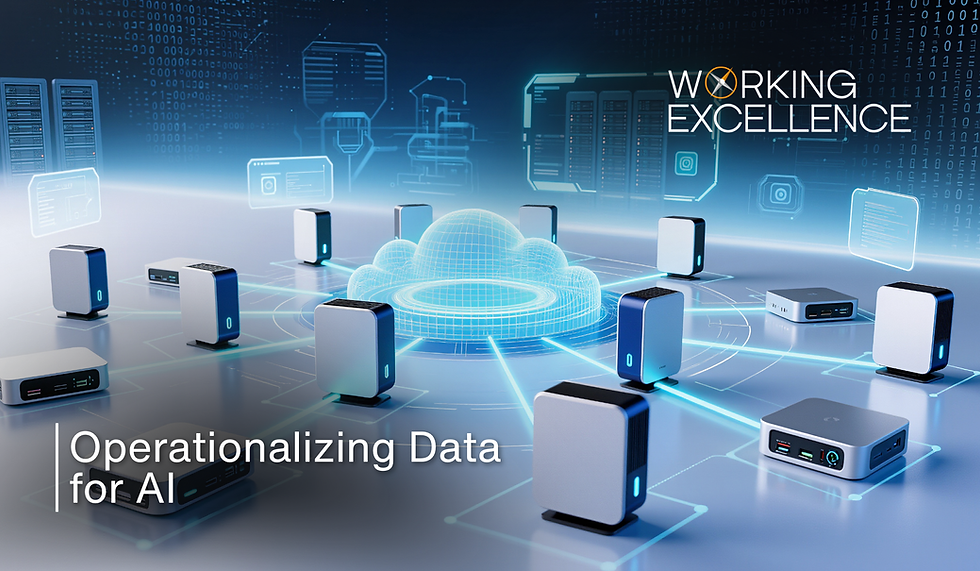Unlocking the Power of Generative AI: Insights for Business Leaders
- Jerry Garcia

- Feb 15, 2025
- 2 min read
In a recent webinar titled "Generative AI Demystified: What It Really Means for Business," experts from MIT Sloan School of Management explored the transformative potential of generative AI in the business landscape. The session, led by George Westerman, provided valuable insights into the capabilities, risks, and strategic applications of this emerging technology.
Key Takeaways
Understanding Generative AI: Generative AI refers to algorithms that can create new content, from text to images, based on existing data.
Capabilities and Limitations: While generative AI can enhance creativity and efficiency, it also comes with risks such as misinformation and ethical concerns.
Strategic Implementation: Businesses must assess when and how to integrate generative AI into their operations for maximum benefit.
What Is Generative AI?
Generative AI is a subset of artificial intelligence that focuses on creating new content. Unlike traditional AI, which analyzes data to make predictions, generative AI can produce original outputs, such as text, images, and even music. This technology leverages deep learning models to understand patterns in data and generate new instances that mimic those patterns.
The Capabilities of Generative AI
Generative AI offers several capabilities that can be harnessed in business:
Content Creation: Automating the generation of marketing materials, reports, and social media posts.
Product Design: Assisting in the design process by generating prototypes based on user specifications.
Data Analysis: Enhancing data interpretation by generating insights and visualizations from complex datasets.
Risks and Challenges
Despite its potential, generative AI poses certain risks:
Misinformation: The ability to create realistic but false content can lead to the spread of misinformation.
Ethical Concerns: Issues surrounding copyright and the ethical use of generated content must be addressed.
Implementation Costs: Integrating generative AI into existing systems can be resource-intensive and requires careful planning.
When to Use Generative AI
The webinar emphasized that generative AI is not a one-size-fits-all solution. Here are scenarios where it can be particularly effective:
Creative Industries: In fields like advertising and entertainment, where content generation is crucial.
Customer Service: Automating responses and generating personalized communication for customer inquiries.
Research and Development: Accelerating innovation by generating new ideas and solutions based on existing research.
Conclusion
As businesses navigate the complexities of digital transformation, understanding generative AI's capabilities and limitations is essential. By strategically implementing this technology, organizations can unlock new opportunities for growth and innovation while mitigating potential risks. The insights shared in the webinar serve as a valuable guide for business leaders looking to harness the power of generative AI effectively.



